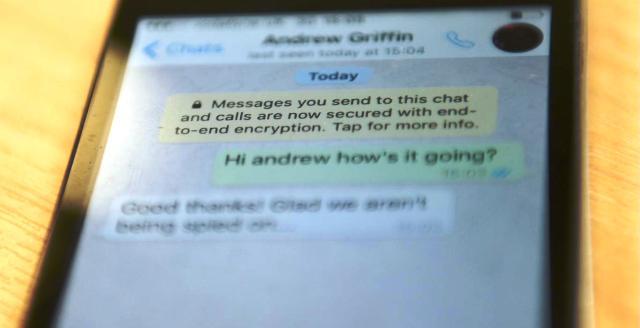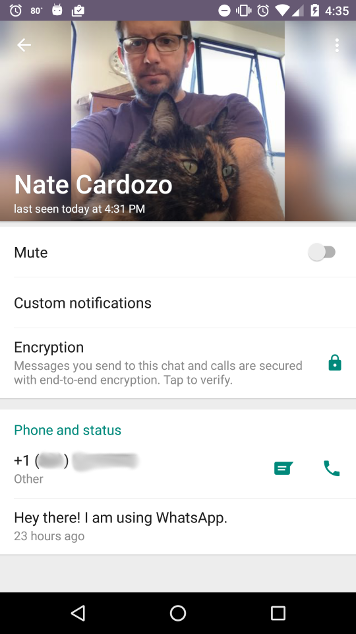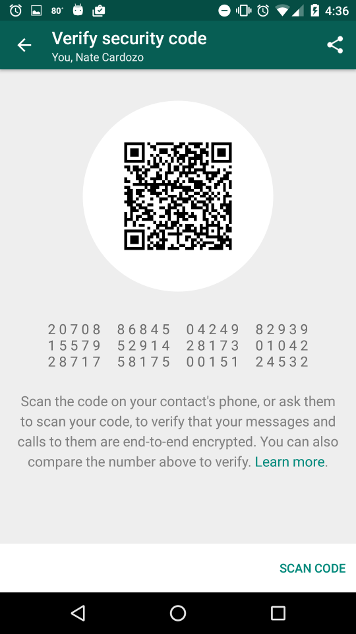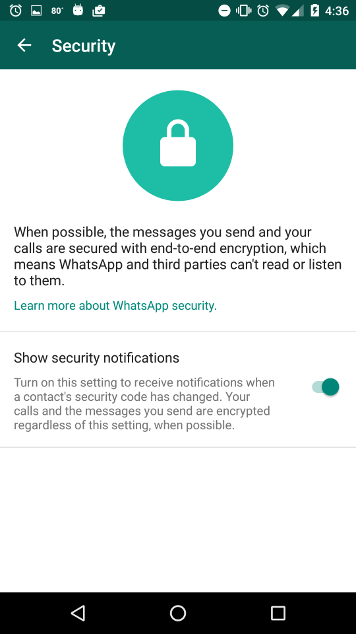
WhatsApp shocked its customers this week by giving its users end-to-end encryption. The “End-to-End” signifies that the conversation is protected prior to it leaving your cell phone, and is only readable after it reaches your partner’s phone. As a result, no other person, including the company, will be able to read your messages.
While critics who wanted WhatsApp to be encrypted are pleased with this new development, the same cannot be said for government agencies – although, the funny thing is, the United States government helped finance the encoding system WhatsApp employs, which will undoubtedly raise a fair amount of suspicion.
However, with that being said, before you start sending content on WhatsApp, keep in mind that while your messages are still in transit, they can still be hijacked by hackers. While the other possibility is that someone can create a backdoor into your system, which will allow them to snoop on your conversation(s). For that reason, encryption itself is not much help if you do not follow the advice we are about to tell you.

If you truly need the information you sent in WhatsApp to be secure, then get rid of it immediately after you have read it. If a person gets their hands on your cellphone – for instance, by stealing it – and knows how to gain access to your cell phone—just as the Federal Bureau of Investigation has done so with the iPhone that was utilized by the shooter in San Bernardino—-every little thing that is on your cell phone will be available to that person.

Furthermore, a few texting or messaging applications, particularly Telegram, include a self-destruct function, which erases the content from the cell phone. You can set a time period for the expiration, and Telegram will delete your messages when the time comes. However, at this time, WhatsApp does not have an automatic message deleting feature.
It should also be brought to light that Telegram does not use end-to-end encryption as a set default standard. As a result, if you want encrypted messages, then you are required to select it manually. It is also worth mentioning that WhatsApp, like most of the encrypted messaging systems, does not save your communications on their server machines. However, on an Apple iPhone, consumers are able to tell WhatsApp to maintain a back-up of communications on Apple’s online storage service – which is commonly known as iCloud. As soon as this data is uploaded to the cloud, it can be checked by a government agency or even by hackers who know their way in.

In comparison, Signal is definitely the application that is favored by privacy enthusiasts – plus their encoding system is similar to what WhatsApp uses. Signal does not save your information or the communication content to the cloud. And it is needless to say, in case you think about taking screenshots of your messages before removing them from the application, if your phone automatically saves your photos to Google’s servers, Apple servers or any other cloud services, then these can also be hacked.
Once more, your conversations can never truly be safe if someone can see your screen; however, if that bothers you, there are many visual protection apps on the market. These apps will allow you to view your screen as normal, however, the people around you will be unable to see what is on your screen. But if you trust the people around you, and the only protection you want is from the government agencies or hackers, then simply delete every message once it’s read, and do not take screenshots of your phone.
In addition, for added protection, try not to use public WiFi. If this is unavoidable, then use a paid VPN that offers encryption services. We know this is a lot of work, but it is always better to take steps to enhance your security. Enjoy your new end-to-end encrypted WhatsApp messaging.
Source: Electronic Frontier Foundation
You want to support Anonymous Independent & Investigative News? Please, follow us on Twitter: Follow @AnonymousNewsHQ
This Article (Is WhatsApp’s Encryption Better Than the Famous Encrypted Messaging Applications Out There?) is free and open source. You have permission to republish this article under a Creative Commons license with attribution to the author and AnonHQ.com.




